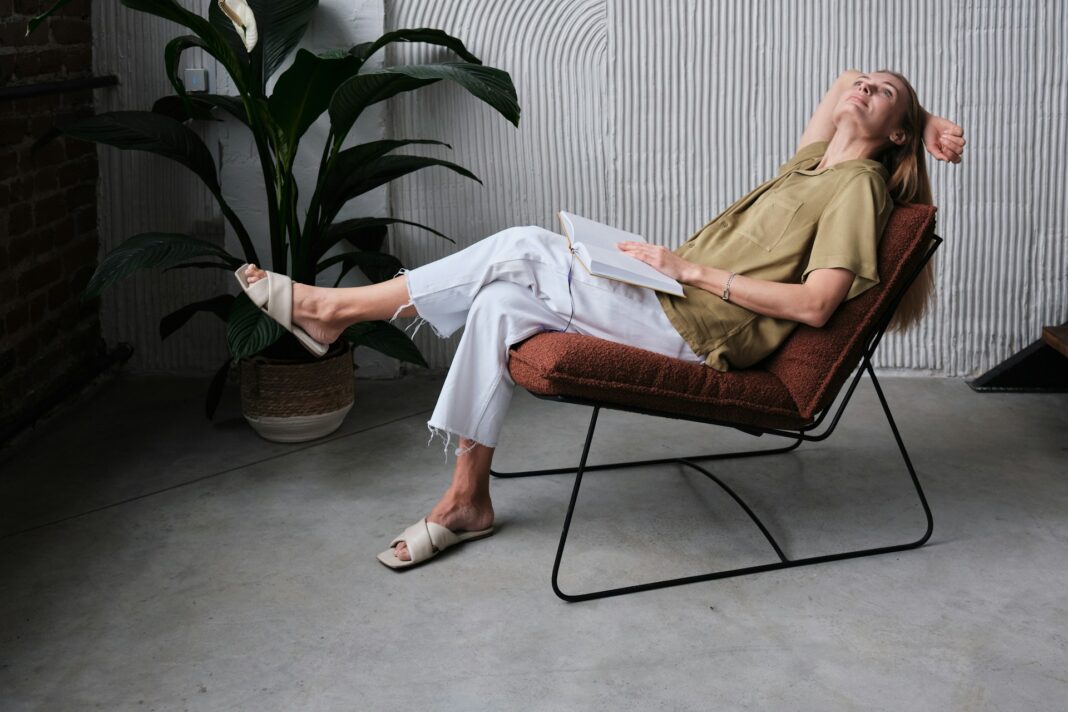Not so long ago, there was a perception that mental health facilities were depressing, institutional environments with windowless white walls and poor living conditions.
However, thankfully, in recent times, this view has changed due to a shift towards creating spaces that promote healing, comfort, and dignity.
For individuals receiving mental health treatment, the design of their surroundings plays a critical role in their well-being. While safety will always remain a top priority, ensuring patients feel secure, respected, and at ease is now equally important.
One key part of this evolution is the increasing use of thoughtfully designed furniture that minimises risks to the patient while maximising their levels of comfort. A prime example is the anti-ligature lounge chair – the impact of which we will discuss in this post.
Here is how anti-ligature lounge chairs are helping to improve comfort and dignity in mental health facilities.
Why is Thoughtful Design Important in Mental Health Spaces?
The physical environment of a mental health facility undoubtedly has a profound impact on patient outcomes. Indeed, several bodies of research suggest that therapeutic spaces that prioritise comfort, natural light, and ergonomic furniture contribute to improved recovery rates.
Historically, mental health care environments were designed with a heavy emphasis on security, often at the expense of comfort, and this is why they were viewed as sterile, uninviting spaces that could feel more like detention centres than places of healing.
However, today, architects and designers recognise the need to create environments that support emotional and psychological well-being by ensuring that patients feel at home rather than institutionalised.
This shift has led to an increased focus on furniture, such as an anti-ligature lounge chair, that meets both safety and design aesthetic requirements.
How Do Anti-Ligature Lounge Chairs Enhance Comfort?
Traditionally, seating in mental health facilities often prioritised durability over comfort, possibly because chronic underfunding from governments forced those who ran them to choose the lowest prices over the most effective solutions. As a result, the furniture was often rigid and unwelcoming.
However, anti-ligature lounge chairs are designed with patient experience in mind, and they are increasingly being used in facilities due to the benefits they provide.
These chairs are intended to provide proper support for the back and neck, which makes them a lot more comfortable to sit on for extended periods. This is particularly beneficial for patients who experience anxiety or distress.
Moreover, unlike the hard, unforgiving surfaces of past institutional furniture, modern anti-ligature lounge chairs are upholstered with high-quality, soft-touch fabrics that offer a sense of warmth and familiarity.
Perhaps most importantly, they also incorporate soothing colours and contemporary styles that create an environment that feels comforting and non-threatening.
Thoughtful Seating Solutions
Dignity is a fundamental aspect of mental health care because when individuals feel respected and valued, they are more responsive to their treatment experience.
Anti-ligature lounge chairs provide patients with a sense of dignity because they are designed for independent use and allow patients to move freely and choose their seating without being instructed to by staff.
By being welcoming rather than restrictive and designed explicitly for healing as opposed to control, they also minimise any feelings of confinement they might experience.
Safety Without Compromise
While comfort and dignity are key components of recovery, safety remains a critical concern in mental health facilities.
Anti-ligature furniture is specifically engineered to reduce risks associated with self-harm or aggressive behaviour, which is why they have become an essential feature in modern mental health design.
One of their key features includes the absence of gaps, seams, or any potential fastening points that can present ligature opportunities. Another is their heavyweight designs, with many being weighted to prevent them from being thrown or used in harmful ways.
They are also built to be durable, tamper-resistant, and to withstand high-impact use in high-risk settings.
The Role of Anti-Ligature Furniture in Holistic Mental Health Care
The design of mental health facilities should fall in line with modern treatment philosophies, which are increasingly emphasising treatments for holistic well-being.
For this reason, therapeutic environments must cater not only to physical safety but also to emotional and psychological support, which is why many centres set a clear message by incorporating anti-ligature lounge chairs into their facility. In other words, they are providing their patients with both protection and comfort.
By committing to this balanced approach, it creates more trust between patients and caregivers, which ultimately results in better therapeutic engagement.
Summing Up
As mental health awareness continues to grow in the USA, UK, Australia, and beyond, the demand for compassionate and well-designed care spaces is ever-increasing.
Thankfully, architects, interior designers, and healthcare professionals are working together to create environments that support the dignity of every individual who is undergoing treatment.
Anti-ligature lounge chairs are one example of how products designed with both safety and aesthetics in mind can lead to better patient experiences.
Therefore, by incorporating them into their setting, mental health facilities can transform their centres into spaces that can help them practice the best techniques for overcoming their struggles.






